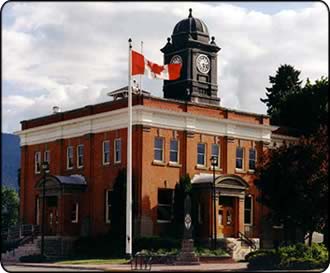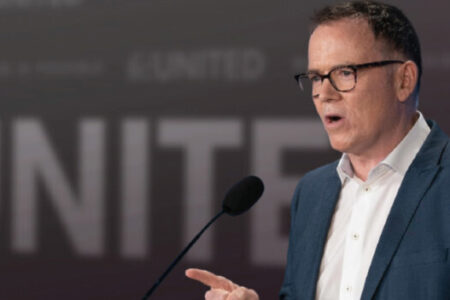Taking motions from local council to the province
As the deadline approaches for motions to be made at local government levels to take forward to the Union of B.C. Municipalities’ (UBCM) next meeting, a series of motions will be made next week at council meetings across the Boundary region to move their issues closer to the next level. Each year local governments get the chance to draw provincial attention to a local or regional issue facing communities. Midway and Grand Forks councillors have decided to try to put forward some pressing matters. The process starts at the local level and moves up the ladder to the Association of Kootenay Boundary Local Governments (AKBLG) in April.
In Midway, Councillor Marguerite Rotvold said that a motion will be made to address recent increases to policing costs. These new costs have come from a communications process used by the RCMP in B.C.
According to the RCMP, PRIME-BC is the “Police Records Information Management Environment” for the province of British Columbia. PRIME-BC is designed to streamline the records management system (RMS), link it to the Computer Aided Dispatch (CAD) system, and be accessible to members on the road using their mobile workstations. In April 2003, the B.C. Solicitor General amended the British Columbia Police Act obligating all police agencies to implement and use one common RMS information system for the enhancement of public safety and law enforcement services delivered to the Province. The province sanctioned the “Police Records Information Management Environment for British Columbia” (PRIME-BC) system. By November 2005, all municipal police agencies and 17 RCMP detachments/units were operational on PRIME-BC (35% provincial police users).
“The government mandated that the RCMP go to the PRIME process without any consultation with local government,” said Rotvold. “But local government has to pay for the operations of it and the cost per officer was $500, now it’s going to $1000. That’s coming out of policing costs. The government mandated they do it, but it’s downloading on local government. So we’re bringing a resolution asking the AKBLG to get the support to bring this issue forward. Operating costs keep going up and up, and being downloaded onto the taxpayers.” Rotvold said that not every province in Canada uses the PRIME process.
In Grand Forks, Mayor Brian Taylor is pushing to get the money being collected by the province from gaming back into the hands of non-profit organizations. In the last two years, gaming funds have been largely withdrawn from community organizations and used to stabilize provincial funding. Taylor said that this is also an attempt at downloading responsibility to local governments to fund community organizations.
“We need to stop the way the gaming commission is bleeding our communities dry – pull-tabs, keno, blackjack, scatch and win – and you can now lose up to $10,000 per week on the internet. The only funding that seems to continue are the contracts the commission have been forced to recognize,” said Taylor. “It is not acceptable to continue to bleed off cash from bars and stores and the internet, and at the same time take away funding from children’s figure skating. The promise has been that gaming revenue belongs to communities – stop sucking our community dry!”
City Councillor Joy Davies is pursuing her motion to address what she considers to be a failing medical marijuana system at the federal level. The Grand Forks councillor has been working locally with a support group that has 13 members to date. She feels that local government should push to see the system management for medical marijuana moved from federal responsibility to a provincial one.
“The ultimate goal is that the province take over the regulation and licencing of medical cannabis. The system the way it is the federal government can’t regulate building codes and they’re not responsible directly for our health,” said Davies. “This has been legal in Canada since 2001, yet we have doctors that don’t even know it is legal. We have patients that have to deal with street dealers and don’t know what cannabis they are getting, how it’s grown, if there are pesticides, etc. So you have no control of your health. It should be between a doctor and his patient just like any other prescription drug.”
Grand Forks Councillor Chris Moslin is added two motions to the table. In one he is asking that the province step up its support in finding solutions to urban wildlife issues – read deer.
“This resolution is obviously about our deer problem that many other municipalities and regions in the province share with us. Currently, we have no conservation officer (CO) because he has been seconded to the Olympics for security detail. This is adding insult to injury because we only have the one CO and he is responsible for a vast area. Urban wildlife issues echo throughout the province and need some attention as wildlife is a provincial matter. I am hopeful that this resolution will find a sympathetic ear at the AKBLG,” said Moslin.
Moslin is also looking for flexibility in deadlines for grants from the higher levels of government. Often, the grant contracts force communities to move quickly once approved. “The hurry up and spend mentality may be a good strategy for immediate stimulus, but I wonder about its effectiveness in the long run if money is hastily spent without proper attention to detail. It is going to be a special challenge for our town to live up to the RInC grant. There are not only financing issues to deal with but public process issues as well. The city will need to consult with a variety of stake holders to make an effective improvement in the pedestrian infrastructure, but the project still has to be completed by March 31, 2011,” said Moslin. “I am hoping that more flexibility in funding federal projects as well as timing can be found for small rural communities that do not have the ‘in house’ staff to pull off a big project in a limited time frame.”
If a council wishes to take an issue forward to be addressed at the provincial level, it must be made a motion locally, then taken to the AKBLG for ratification. If the motion is approved at the AKBLG, it will then be taken to the UBCM to be addressed. If passed at the UBCM, the province must respond to the motion over the next year.






















